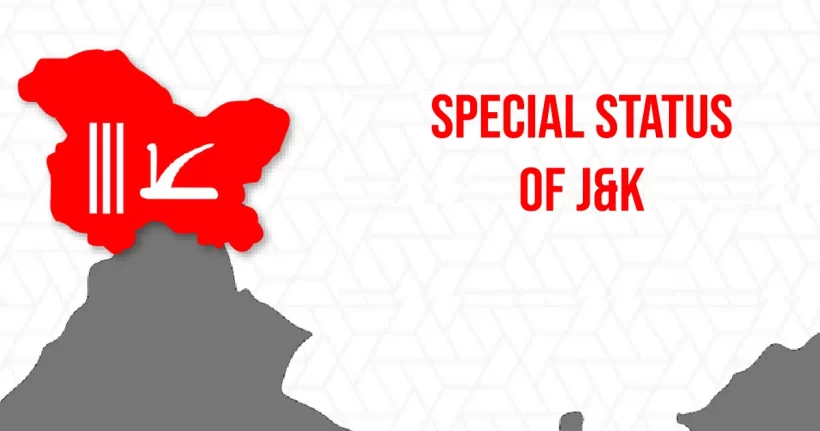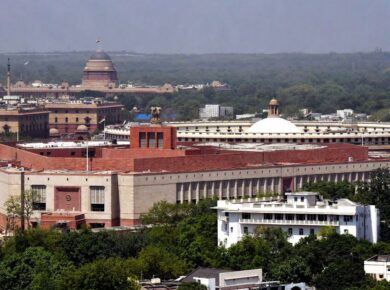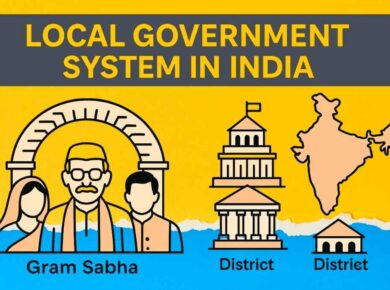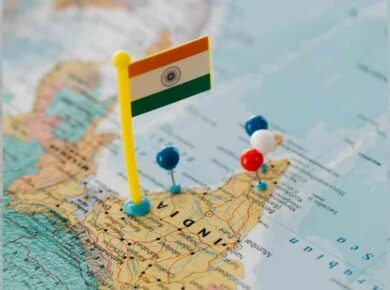Special Status of J & K
J & K has truly federal relation with the union. J & K got independence on 15th Aug, 1947 along with India, but daunted with the problems of forced annexation with Pakistan, it signed the Instrument of Accession with India & became a part of it
- Instrument of Accession > Signed b/w Nehru & Maharaja Hari Singh on 26th Oct 1947
- Under this, India acquired jurisdiction over the state wrt subject of Defence, External affairs & communication.
- People of J & K elected a sovereign constituent assembly which met for the 1st time on Oct 31, 1951
Advertisement: World’s fastest hosting – secure, reliable, limited-time offer! Click now!
Article 1 states J & K is a constituent state of Indian union, however Article 370 grants a special status to J & K on the basis of agreement concluded at time of J & K accession to Indian union:
- J & K has its own constitution apart from Indian constitution (Framed on 17th Nov 1956 & came in force on 26 Jan 1957)
- Parliament cannot make laws with regards to J & K on subjects stated in state list
- Residuary powers lies with legislature of J & K
- Follows dual citizenship, only citizens of J & K can take part in elections to state assembly.
- Only citizens of J & K can acquire, own & dispose of immovable property in J & K
- Only national emergency proclaimed on the grounds of war & external aggression shall have automatic extension to J & K.
- National emergency proclaimed on the grounds of internal armed rebellion shall not be automatically extended to J & K
- Parliament cannot change name, boundary or territory of J & K without the concurrence of state legislature.
- No preventive detention law made by government can have automatic extension to J & K (Note > PMLA is also applicable for J & K)
- Union has no power to proclaim a financial emergency to J & K
- State government shall be consulted by centre before appointing a person as governor of J&K
- Apart from Presidential rule, governor rule can also be imposed for a max. of 6 months
- DPSP & Fundamental duties enlisted in Indian constitution are not applicable to J & K
- Urdu > Official language of the state
- J & K High Court
- Can issue writs only in case of violation of FRs
- Cannot declare a law unconstitutional – Lack of Judicial activism.
20 Key Points for UPSC
-
Article 370 granted special autonomous status to Jammu & Kashmir (J&K).
-
It was a temporary provision under Part XXI of the Constitution.
-
J&K had its own Constitution, adopted in 1957.
-
Indian Parliament needed state concurrence to apply laws in J&K (except defense, foreign affairs, and communication).
-
Article 35A (inserted via Presidential Order in 1954) empowered J&K to define “permanent residents” and grant them special rights.
-
J&K had dual citizenship—state and Indian.
-
Fundamental Duties and Directive Principles were not fully applicable.
-
The Right to Education (Article 21A) and other laws had limited implementation.
-
The President couldn’t declare a financial emergency in J&K.
-
The Governor had more power than in other states.
-
The national flag and state flag were both used in official capacities.
-
The jurisdiction of the Supreme Court was limited unless extended by Presidential order.
-
J&K had no reservation for SCs in Legislative Assembly (due to demographic composition).
-
Women lost permanent resident status if they married non-residents (until 2002 ruling).
-
The Article 370(3) provision allowed its abrogation by Presidential order with Constituent Assembly recommendation (now defunct).
-
On August 5, 2019, the Government of India abrogated Article 370.
-
Jammu & Kashmir Reorganization Act, 2019 bifurcated the state into two Union Territories—J&K and Ladakh.
-
Post-abrogation, all Indian laws are now applicable in J&K.
-
J&K now has a Legislative Assembly, while Ladakh does not.
-
The move was termed historic but remains politically and legally contested.
If you’re passionate about building a successful blogging website, check out this helpful guide at Coding Tag – How to Start a Successful Blog. It offers practical steps and expert tips to kickstart your blogging journey!
For dedicated UPSC exam preparation, we highly recommend visiting www.iasmania.com. It offers well-structured resources, current affairs, and subject-wise notes tailored specifically for aspirants. Start your journey today! Share your Feedback about Special Status of J & K.







1 comment
Thanks for sharing